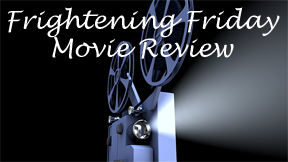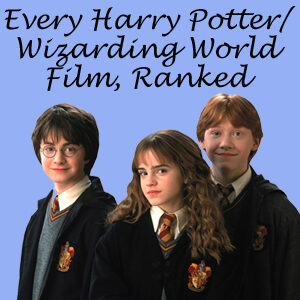As her career launched, like most actresses, Christina Ricci supplemented artistic, critic-lauded work with better-paying gigs, which likely explains her top billing in “The Gathering” (2003) amid a young-audience horror boom. Slightly classier than the surrounding genre entries – calling to mind TV’s “Miracles” from the same year – “The Gathering” stars Ricci as American Cassie, who temporarily loses her memory after being hit by a car in the U.K., and who sees visions of people with gruesome injuries.
Like ‘The Omen’ minus the vibe
There are couple ways to go with screenplays like this one from Anthony Horowitz, who I know best for his mostly solid “Poirot” TV adaptations and who has gone on to be prolific in TV. You can make it an original title, which means it will be lost in the crowd unless the style is next-level great, or you could try to make it a sequel to a dormant franchise, such as “The Omen,” which means it will be rewatched but made fun of.
The producers chose the former, but “The Gathering” is very much like if “The Omen” was presented without panache. After two unfortunate bystanders fall to their deaths in a hole where a church was buried 2,000 years ago but the ground now loosened, village church officials and archeologists – led by Kirkman (Stephen Dillane) — behave alternately nobly and mysteriously as they investigate.

“The Gathering” (2003)
Director: Brian Gilbert
Writer: Anthony Horowitz
Stars: Christina Ricci, Ioan Gruffudd, Stephen Dillane
Horowitz sets up several simmering mysteries. Who is Cassie? (Even she doesn’t know, which is perhaps stupid, but maybe there will be a payoff.) Who is Dan (Ioan Gruffudd), the local who befriends her? Why are Cassie and young Michael (Harry Forrester), the archeologist’s son, having visions?
Brian Gilbert directs in an adequate TV style, with lots of shots of Cassie – staying with Kirkman’s family — tossing and turning and going to the window in a skimpy nightshirt to watch the storm, or to Kirkman’s study to dig through his photographs of the buried church. Cuts to visions or to flashbacks are supposed to convey mood, but they are tame and unscary. No sense of foreboding develops.
A compelling moral lesson
Horowitz’s core theme, teased throughout and then solidified in dialog, deserves recognition. A lot of morals-of-the-story – especially in cliched horror – are themselves cliched; things that children have been taught for so many centuries that we barely hear them anymore, even if we agree with them.
But Horowitz pitches a new moral lesson: If you see something bad happening, don’t just stand by and watch. Do something. Try to stop it. Fight against it. At least speak out.

We tend to think of humanity’s catalog of core moral lessons as being somewhat natural and complete, but in reality there is some randomness. What if the notion that it is correct to always resist injustice was part of our core morality? “The Gathering” makes a compelling case that the world would be a better place.
Unfortunately, Horowitz’s idea comes packaged in a cliched piece of throwaway religious horror. Ricci is a skilled actress – though she can’t do much here – so some people will do deep dives into her catalog and find “The Gathering.” For the theme, it’s worth gathering more viewers. For the overall film, unfortunately it is not.

